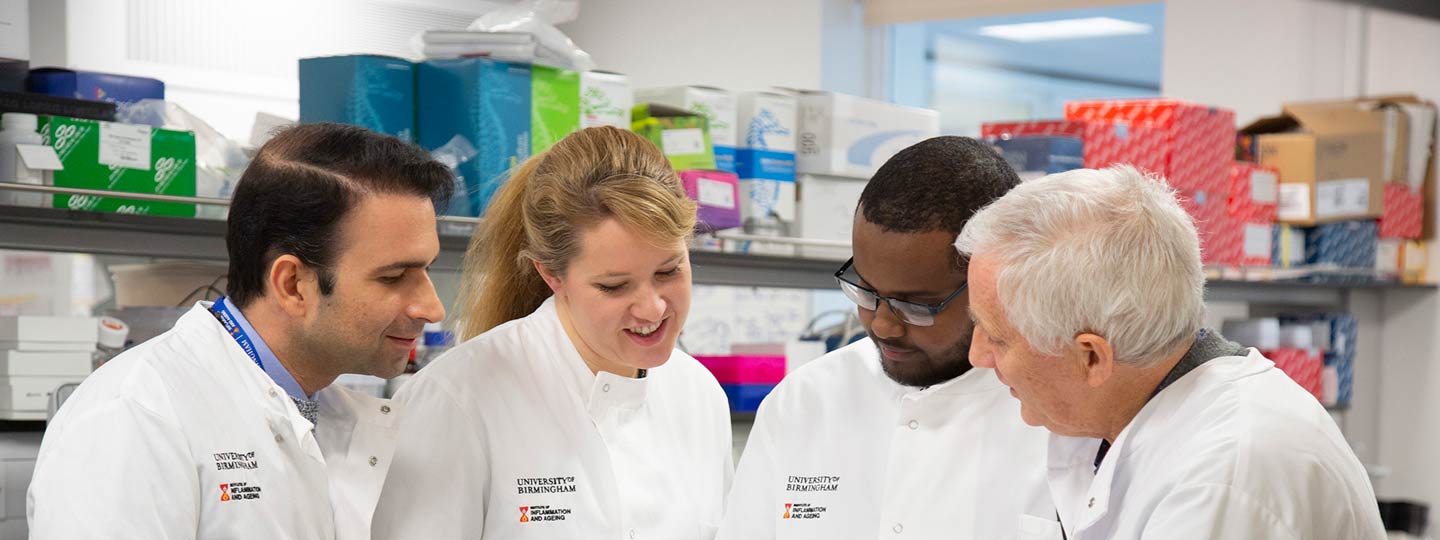Our lupus research highlights
10 May 2022
Lupus is a long-term condition that can cause inflammation in the skin, organs, and in various other places in the body. It’s an autoimmune condition. The immune system, which normally protects us against infection and illness, starts to attack the body’s own tissues instead.
Lupus can affect many parts of the body in several ways. It can range from mild to severe, and symptoms can vary from person to person.
For example, Melissa, 23, takes us through a typical day for her working as an occupational therapist living with lupus and type 1 diabetes. Read her story.
It’s unclear why some people get lupus. It’s thought to be the result of a mix of genetic, hormonal and environmental factors. Research will help to develop knowledge, understand causes and improve diagnosis and treatment options for people living with lupus.
Here are some of our lupus research highlights.
The impact of COVID-19 in rare autoimmune diseases
People with autoimmune diseases such as lupus are more likely to have other conditions such heart or kidney disease, making them more vulnerable to the effects of COVID-19.
Dr Megan Ritter’s research aims to understand the impact of COVID-19 on people with conditions like lupus to identify risks and inform clinical guidelines and policies such as vaccinations.
BEAT-Lupus clinical trial shows promise of new treatment for lupus
We’ve funded the UK’s first clinical trial testing a combination of biological treatments for people with systemic lupus erythematosus (SLE), the most common form of lupus.
The BEAT-Lupus clinical trial has found that the combination of belimumab and rituximab is safe for patients with lupus and shows promising results for its effectiveness. Whilst a larger study now needs to confirm the results, this is a positive step towards a new treatment option for people with lupus.
Lupus and young people
A study led by Dr Coziana Ciurtin at University College London is exploring why juvenile systemic lupus erythematosus (JSLE) often affects girls around the time of puberty.
Previous research has found differences in the way B cells (a type of white blood cell) behave in healthy adolescent males and females and these differences can be lost if adolescents develop juvenile lupus.
This project aims to better understand the role of hormones in influencing B cell behaviour, and how that is linked to puberty and lupus developing.
Researchers at the Centre for Adolescent Rheumatology Versus Arthritis are working with young people to better understand how lupus and other inflammatory conditions develop in children and teenagers.
The centre aims to develop better treatments, improve clinical care and help young people to self-manage their condition.
Understanding the link between lupus and vascular disease
We’re also funding research looking to understand why people with lupus often develop vascular disease.
Researchers led by Dr Chairs Pericleous is exploring how antibodies present in the blood of people with lupus can damage the vessel lining. A better understanding of how these antibodies act may lead to a new target for treatment of lupus-related vascular disease.
Which proteins contribute to inflammation in lupus?
Researcher led by Dr Francesca Capon at King’s College London is exploring the role of a protein called IL-36 in lupus.
Normally, the protein IL-36 helps white blood cells to fight infection. However excessive production of this protein causes skin and joint inflammation, which are symptoms often seen in people with lupus.
The study is hoping to understand whether IL-36 controls activity of other proteins which are known to function incorrectly in lupus.
How you can get involved in our research
We’ve recently launched new and exciting opportunities to get involved in our research.
Read our get involved in research information to find out how you can become involved.
We’re here whenever you need us.
- If you would like to talk to someone, you can call our free helpline on 0800 5200 520
- Talk to our arthritis virtual assistant, 24/7
- Join our online community
- Stay in touch and follow us on Twitter, Facebook and Instagram.
You might also be interested in...
-
BEAT-Lupus clinical trial shows promise of new treatment for lupus
The BEAT-Lupus clinical trial has shown that treatment with the biologic drug belimumab after rituximab is safe and has a positive effect on disease activity and symptoms.
-
"There is always hope, there is always help available."
Anthony was diagnosed with lupus over 20 years ago. Here he shares how a healthy diet, exercise and keeping positive have helped him strike a healthy balance.